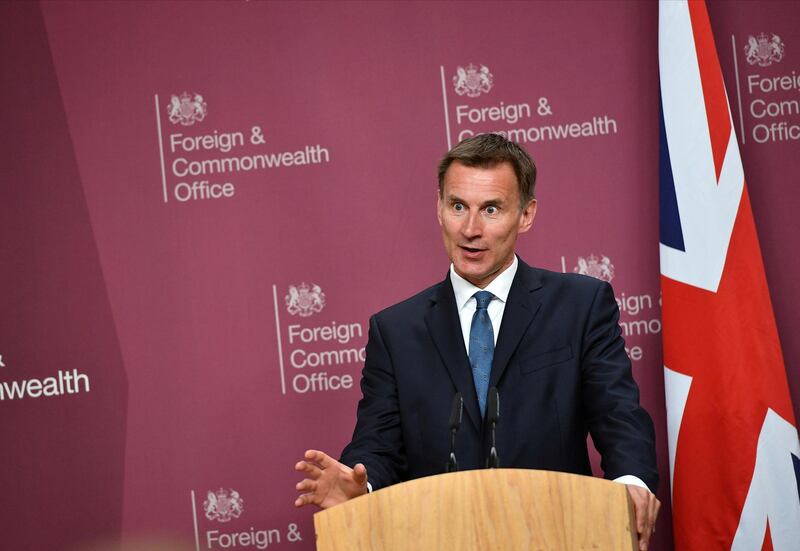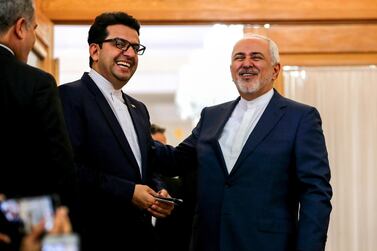The UK is not sufficiently prepared to enact sanctions after Brexit, a parliamentary committee has concluded in a new report.
The House of Commons foreign affairs committee said the UK could forfeit an opportunity to become a global leader in sanctions policy after leaving the EU.
It said current planning was unclear, fragmented, incoherent and ultimately put national security at risk.
"The UK cannot afford the risk of allowing its sanctions policy to be dictated by the decisions of others," the committee's report said.
"Instead, the UK must seize the opportunity to become a global leader in sanctions policy and must aim to set the international gold standard."
The UK’s sanctions regime currently relies on measures adopted by the UN and EU. About two thirds come from EU decisions.
The country’s Foreign Office is working to replace the legal framework around such penalties to ensure relevant sanctions remain in place on the day of Britain’s exit from the EU.
Parliament last year passed the Sanctions and Anti-Money Laundering Act but the committee says the government has not acted quickly enough to ensure a smooth transition.
And government departments and the Office of Financial Sanctions Implementation were not working cohesively to help NGOs and businesses understand what sanctions will apply to which activities and entities.
The committee recommended a major review of the government’s approach to sanctions “at every stage: overall strategic goals, policy planning and formation, implementation and enforcement”, to bring the process back on track.
It also said a senior responsible officer would be needed to oversee it.
The UK needs to closely ally itself with more world powers for its sanctions to carry some weight after Brexit, Dr Erica Moret, chair of the Geneva International Sanctions Network, wrote in her evidence to the committee.
But Dr Moret warned against following the US too closely.
“The UK should exercise caution in closer co-ordination with the US at the expense of the EU, in light of the diverging approach on sanctions under the presidency of Donald Trump,” she wrote.
The committee also expressed concern that the Foreign Office has failed to deal with its responsibility to sanction people involved in money laundering, corruption and human rights abuses.
“The Home Office has not provided a list of people who are prevented from entering the UK as sanctioned," it said.
"We believe it would be far more effective to publish this list so as to demonstrate beyond doubt the UK's commitment to the rule of law."
Tom Tugendhat, chairman of the committee, said: "We hoped to find that the FCO was well-prepared in this area, with a strong sense of its goals and strategic priorities.
“Given how serious this issue is, we really wanted to find evidence of strong partnerships across government departments. We are deeply concerned that the evidence tells a different story.”
Richard Ratcliffe, husband of British-Iranian charity worker Nazanin Zaghari-Ratcliffe, who is being held hostage by the Iranian authorities, told the committee that Magnitsky powers could be brought to bear on Iranians to increase pressure on the state to release his wife and other prisoners.
The global Magnitsky Human Rights Act, enacted in 2012, is aimed at punishing senior officials for human rights violations and was inspired by the death of a whistleblower in Russia.
"Without the possibility or threat of Magnitsky powers, the UK government has no appropriate mechanism to apply pressure to the individuals directly involved in Nazanin's imprisonment," Mr Ratcliffe wrote.
"The availability of Magnitsky powers would likely create accountability, even if such powers were not used."







